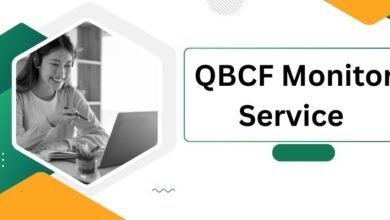Navigating Office Politics: A Key to Career Advancement

In today’s competitive corporate world, simply excelling at your job is not enough to secure career advancement opportunities. Navigating office politics has become a crucial skill for anyone aspiring to climb the corporate ladder and unlock their full leadership potential. By mastering the art of office politics, you can position yourself for success, build strategic alliances, and increase your chances of being recognized for promotions and high-visibility projects.
Understanding the Power Dynamics
Every organization has an intricate web of power dynamics, unwritten rules, and informal networks that shape decision-making processes. To navigate office politics effectively, you must first understand the underlying power structures and identify the key players who wield influence within the organization. Observe how decisions are made, who has a say in important matters, and how information flows across different departments and hierarchies.
Building Strategic Relationships
Developing strong relationships with colleagues, superiors, and stakeholders is crucial for career advancement opportunities. Identify individuals who can potentially become allies or mentors, and invest time in building rapport and trust with them. Attend company events, participate in cross-functional projects, and seek opportunities to collaborate with others. By expanding your network and fostering positive relationships, you increase your visibility and gain valuable support when opportunities arise.
Communicating Effectively
Effective communication is a cornerstone of successful office politics. Learn to articulate your ideas clearly, listen actively, and adapt your communication style to different audiences. Develop the ability to read between the lines and understand the underlying motivations and concerns of others. By communicating persuasively and building consensus, you can influence decision-making processes and gain buy-in for your initiatives.
How to Increase Leadership Skills
Demonstrating leadership qualities is essential for career advancement opportunities, particularly when vying for managerial or executive roles. Develop your emotional intelligence by being self-aware, empathetic, and adept at managing emotions – both your own and those of others. Embrace accountability and take ownership of your actions, fostering trust and respect among your colleagues. Additionally, cultivate a growth mindset by continuously seeking opportunities for learning and self-improvement.
Managing Conflicts and Differing Perspectives
Conflicts and differing perspectives are inevitable in any workplace. Learn to manage these situations with diplomacy and professionalism. Approach disagreements with an open mind, seeking to understand different viewpoints before advocating for your own. Increase leadership skills, such as active listening, reframing issues, and finding common ground. By demonstrating your ability to navigate conflicts constructively, you will earn respect and credibility among your colleagues.
Ethical Considerations
While navigating office politics, it is essential to maintain high ethical standards and professionalism. Avoid engaging in gossip, backstabbing, or unethical behavior, as these actions can damage your reputation and undermine trust within the organization. Instead, focus on adding value, being transparent, and acting with integrity. By upholding ethical principles, you can navigate office politics while preserving your moral compass and earning the respect of your peers.
Conclusion
Mastering the art of office politics is a critical skill for anyone seeking career advancement opportunities and increased leadership responsibilities. By understanding power dynamics, building strategic relationships, communicating effectively, cultivating leadership qualities, managing conflicts diplomatically, and maintaining ethical standards, you can navigate the complexities of office politics and position yourself for success. Remember, office politics is not about manipulation or deceit; it’s about developing emotional intelligence, building trust, and leveraging your influence to drive positive change within your organization.



